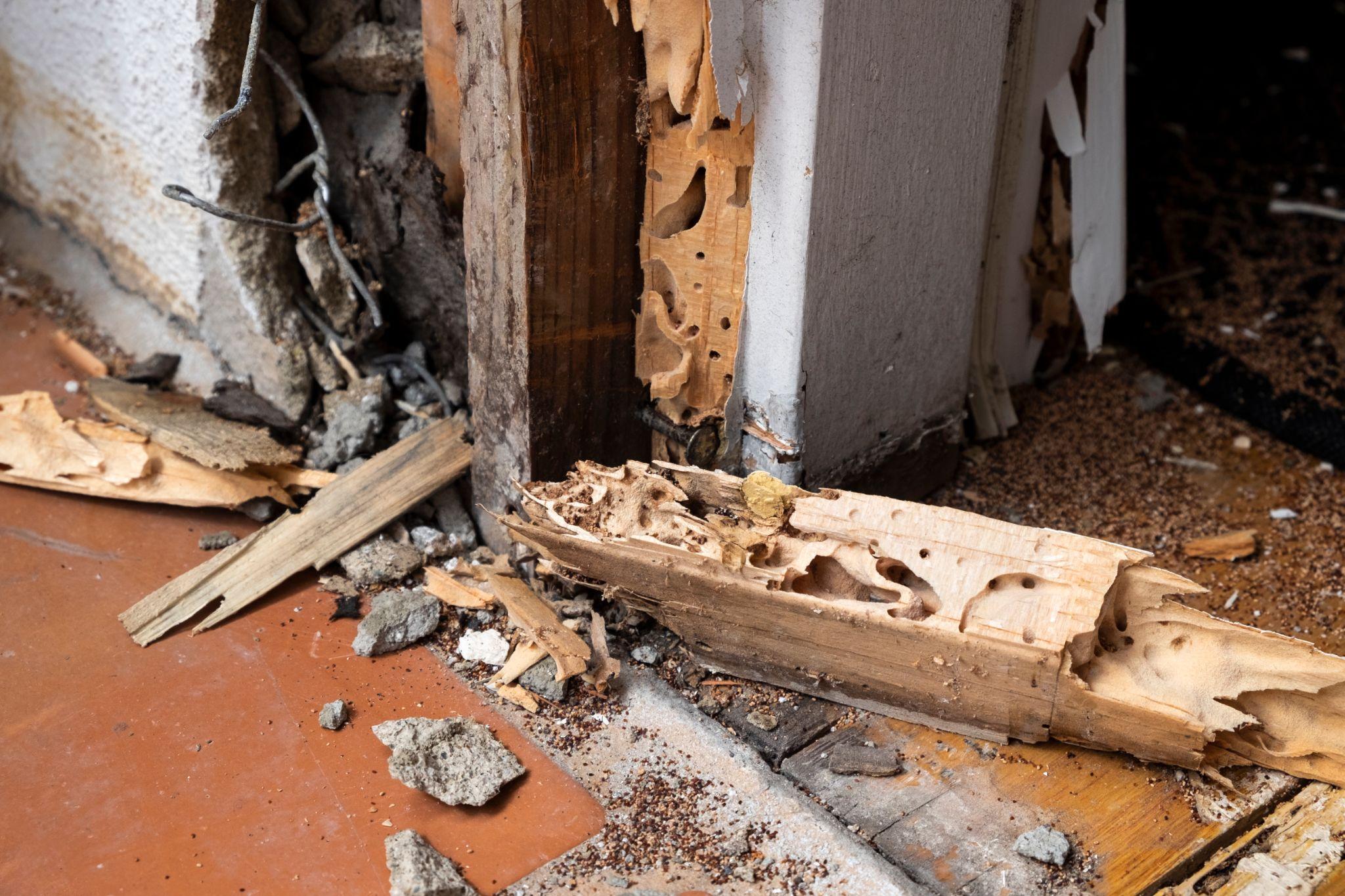Discovering termite activity when you’re preparing to sell your home can feel overwhelming. From evaluating the extent of the issue to deciding whether to make repairs, homeowners have important choices to make before selling a house with termite damage.
Termites are one of the most common concerns in real estate transactions, and buyers are often cautious when evidence is present. Knowing how to assess the situation and present your property can make the process smoother and help you move forward with confidence.
Assessing the Damage
The first step is understanding the scope of the problem. A licensed termite inspection—sometimes called a wood-destroying organism (WDO) inspection—provides a report that documents any active termites in the house, signs of past infestations, and areas of damage.
Inspectors often look at:
- Damage assessment: Distinguishing between minor trim or surface wood damage and issues affecting floor joists, beams, or other structural elements.
- Active vs. past infestations: Checking for live termites, mud tubes, or frass compared to old, previously treated damage.
- Structural safety: Noting concerns like sagging floors, weakened supports, or compromised roofing elements.
- Conducive conditions: Identifying factors such as wood-to-soil contact, plumbing leaks, or damp crawlspaces that promote termite activity.
This inspection gives sellers a clearer picture of what needs attention and helps in deciding whether repairs or an as-is sale makes more sense.
Disclosure Requirements
Sellers are generally required to share any known termite evidence in a house with potential buyers. These obligations vary by state, but most disclosure forms include space to note current or past termite issues, treatments, or repairs.
Lenders may also require a termite inspection report during the mortgage process, especially if buyers are using government-backed loans. Providing documentation up front can prevent surprises later and may reduce the chance of delays during closing.
In practice, being upfront about selling a house with a termite history often helps maintain buyer trust and avoids disputes after the sale. Buyers may still request concessions or price adjustments, but transparency usually makes negotiations smoother.

Repair vs. Sell As-Is
Once you understand the extent of the problem, you’ll need to weigh the costs and benefits of two approaches:
- Repair before listing: Minor termite treatments and cosmetic fixes may be manageable, while significant structural repairs can be more expensive. Making these improvements can reassure buyers but also adds time and cost before you sell.
- Sell as-is: Some homeowners choose to sell directly to cash buyers or investors who purchase homes in their current condition. This option typically results in a faster sale, though the offer price may reflect the cost of needed repairs.
Your decision will depend on your priorities, budget, and timeline. For some sellers, the speed and certainty of an as-is sale outweigh the investment required to repair termite damage.
FAQs
Can you sell a house with termites?
Yes. Many buyers, including investors and cash buyers, are open to purchasing a property with termite issues as long as the situation is disclosed.
Do you have to disclose termites when selling a house?
In most states, you must disclose known termite activity, past infestations, or repairs related to termites when completing property disclosure forms.
How much does termite damage affect the value of a house?
The impact depends on the severity of the damage and whether it is active or historic. Minor cosmetic issues may have little effect, while structural problems can lower a property’s value more significantly.
Is termite damage considered structural damage?
Sometimes. If termites have compromised load-bearing elements like beams or joists, that is considered structural.
Who pays for termite treatment: buyer or seller?
It depends on the negotiation. Some sellers pay for treatment in advance, others offer a credit, and some buyers accept the responsibility in exchange for a lower purchase price.
Sell Fast—No Repairs Needed
If you’d rather avoid the cost and stress of dealing with termites in the house before selling, 800CashToday can help. We buy homes as-is, so you don’t need to handle repairs or worry about last-minute negotiations over termite evidence in a house.
Work with an as-is home buyer who understands your local market and can provide a fair cash offer quickly. Call 1-800-CASH-TODAY and sell your home the easy way.



